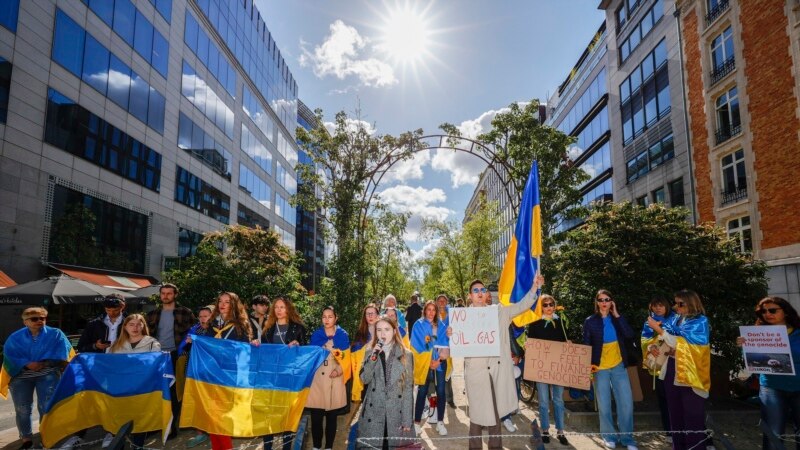
European Union leaders agreed late Monday to ban two-thirds of Russian oil imports as part of a compromise deal to increase pressure on Russia while accounting for the economic effects on some EU nations that are more reliant on Russian oil supplies.
The embargo cuts off Russian oil delivered by sea, while exempting oil imported through pipelines.
Landlocked Hungary had threatened to oppose restrictions on oil imports, a move that would have scuttled the effort that requires consensus of all EU members. European Council President Charles Michel said he expects EU ambassadors to formally endorse the embargo, which is part of a larger sanctions package, on Wednesday.
Ukrainian leaders have long called for banning Russian oil imports in order to deny Russia income it can use to fuel its war effort. Ukrainian President Volodymyr Zelenskyy reiterated his appeal as he spoke to the EU Monday.
Combined with pledges from countries such as Germany to phase out their Russian oil imports, European Commission President Ursula von der Leyen said the agreement will “effectively cut around 90% of oil imports from Russia to the EU by the end of the year.”
Other parts of the sanction package include assets freezes and travel bans on individuals, and excluding Russia’s biggest banks, Sberbank, from the SWIFT global financial transfer system. The EU is also barring three Russian state-owned broadcasters from distributing content in EU countries.
EU leaders also agreed to provide Ukraine with $9.7 billion in assistance for the country’s economy and reconstruction efforts.
Luhansk fighting
Fierce fighting has erupted on the streets of the eastern Ukraine city of Sievierodonetsk, with Kyiv’s forces trying desperately to fight off the Russian onslaught.
Ukrainian President Volodymyr Zelenskyy characterized the situation as “indescribably difficult.” In a televised speech, he described capturing Sievierodonetsk as “a fundamental task for the occupiers” and said Ukraine was doing all it could to protect the city from a Russian takeover.
Russian troops have entered the city, power and communications have been knocked out, and “the city has been completely ruined,” Sievierodonetsk Mayor Oleksandr Striuk told The Associated Press in a phone interview.
“The number of victims is rising every hour, but we are unable to count the dead and the wounded amid the street fighting,” the mayor said. Striuk said 12,000 to 13,000 civilians remain in the city that once had 100,000 residents. They are sheltering in basements and bunkers to escape the Russian assault.
Striuk estimated 1,500 civilians in the city have died since the war began, from Russian attacks as well as from a lack of medicine or treatment.
Sievierodonetsk, the last major Ukrainian-held population center in the eastern Luhansk province, has become the focus of Russian attacks as Moscow attempts to control the Donbas region after failing to topple Zelenskyy or capture the capital, Kyiv, during more than three months of fighting. Sievierodonetsk is about 140 kilometers from the Russian border.
Luhansk Governor Serhiy Gaidai said Russian troops “use the same tactics over and over again. They shell for several hours — for three, four, five hours in a row — and then attack. Those who attack die. Then shelling and attack follow again and so on until they break through somewhere.”
In Washington, U.S. President Joe Biden said he would not send rocket systems to Ukraine that could reach Russia. Ukraine has received extensive U.S. military aid but has requested more powerful rocket systems.
Toll on journalists
Zelenskyy said in his nightly address Monday that 32 media workers had been killed in Ukraine since the beginning of the Russian invasion.
That includes French journalist Frédéric Leclerc-Imhoff, who died Monday near Sievierodonetsk.
French broadcaster BFM TV said the 32-year-old journalist was hit by shrapnel while reporting on Ukrainian evacuations from the area.
French President Emmanuel Macron sent his condolences to the family and colleagues of Leclerc-Imhoff, writing in a tweet that the journalist died showing “the reality of the war.”
French Foreign Minister Catherine Colonna, who was in Ukraine on Monday, called for an investigation into the journalist’s death, saying in a statement that “France demands that a probe be carried out as soon as possible.”
Some information in this report came from The Associated Press, Agence France-Presse and Reuters.
